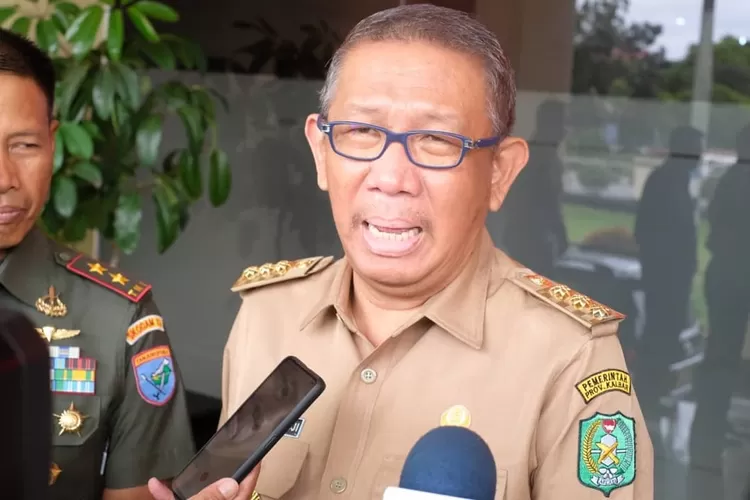
On May 25, Governor Sutarmidji of West Kalimantan, Indonesia, called on the Ministry of Agriculture to pass quality control regulations on kratom. The governor’s request occurred following a rejection of 7 out of 14 cargo container shipments by American kratom buyers.
The containers were returned because the product sent did not pass the quality test. The reason, continued [Deputy Chairman of the West Kalimantan Chamber of Commerce and Industry Rudyzar Zaidar Mochtar], was that buyers found that the kratom powder sent was mixed with other ingredients.
“They said that our kratom has low levels of micronutrients. It is even said that some are mixed with wheat flour and other plant leaf flour. We don’t know whether this report is true or not,” he said.
Source: https://pontianakpost-jawapos-com.translate.goog/berita-utama/21/05/2023/kualitas-buruk-puluhan-kontainer-kratom-dikirim-balik-dari-as/?_x_tr_sl=id&_x_tr_tl=en&_x_tr_hl=en&_x_tr_pto=wapp
Rudyzar also said that he noticed an increase in exports without an increase in farm production, suggestion shipments could have been cut with other plant material.
Members of PPHI, an Indonesian farmers co-op, told Kratom Science in 2021 that speculative business practices from American buyers were lowering the price, and thus quality, of kratom imports. Kratom is being purchased at $4/kg. At that price, according to PPHI, kratom farmers cannot afford the overhead necessary to put quality controls in place.
The price of kratom export in general which is currently valid is $ 4- $ 6 / RAW (untested) kg. This is for products that do not meet kratom processing standards as raw material for herbal medicine or food mixture. Ideally the price is $ 12 / kg. Because there must be a washing process, where the indoors is separate and free from dust and animal contamination. As well as standard food grade milling machines, which we try to purchase in order to afford together, especially considering that most people are processing manually, by human power.
The price downfall is caused by the speculation attitude of sellers and buyers, especially the buyer of the USA. Those who buy large quantities in bulk as “big business” always suppress the actual purchase price, preventing our suppliers from maintaining quality. If this continues to occur, it will be a threat to the kratom market in the USA, because it is now filled with low quality kratom products, many cases of bacterial contamination, (this occurs at this time of year every year, it is seasonal) because the workmanship and raw materials that are used do not meet the minimum standard market needs in USA. Again, we must emphasize that this is what we are told when we meet with business interest located in the USA.
From our 2021 interview with PPHI: https://www.kratomscience.com/2021/08/12/transcript-of-kratom-science-podcast-57-representatives-of-pphi-indonesian-farmers-co-op/
Most of the kratom consumed in the US is produced in West Kalimantan, Indonesia. It accounts for 36% of the gross regional domestic product (GRDP) of the province’s Agriculture, Forestry and Fisheries Sectors. An estimated 45 million kratom trees grow in West Kalimantan, with 2 million of those trees being cultivated by 18,000 farmers.
The BNN or National Narcotics Agency of Indonesia, however, wants to ban kratom. As with the US Drug Enforcement Agency (DEA), banning plants justify massive government funding of the BNN for eradication and prohibition enforcement.
Governor Sutarmidji, however, wants immediate regulations on the kratom trade, and a lab built in the region, so only quality products can be exported. He told Indonesian press last week that banning kratom would cost thousands of farmers their livelihoods, and that Thailand, having legalized kratom in 2021, will draw business away should Indonesia fail to develop a regulated trade system.
The BNN warned that it a kratom ban would come in 2023. However, the agency has no power to pass laws, and kratom remains legal in Indonesia, as PPHI explained to Kratom Science in 2021:
In Indonesia, BNN does not have the authority to make regulations or laws. BNN only has an execution function if there is a violation or abuse (in the case of drugs and narcotics). But BNN has the right to submit a law but the decision remains with the ministry of health. In the Regulation of the Minister of Health No. 4 of 2021 concerning the Classification of Narcotics, Kratom is not included in the Narcotics group. So it is not forbidden to trade.
Source: https://www.kratomscience.com/2021/08/12/transcript-of-kratom-science-podcast-57-representatives-of-pphi-indonesian-farmers-co-op/
Other sources for this article:

Thank you for this insightful article, which confirms reports I’ve been receiving from key players in this critical discussion. This explains the lower potency that many in the US Kratom community have reported.